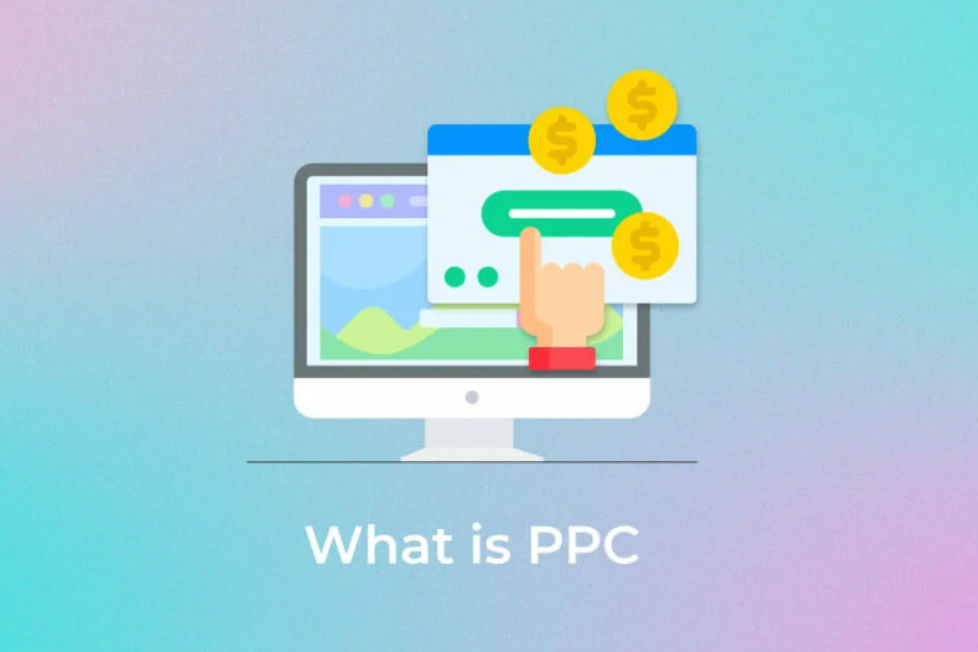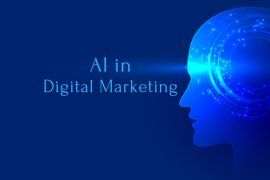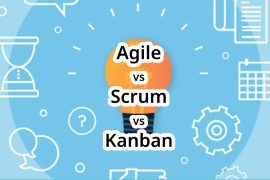Pay-Per-Click is a type of digital marketing channel that businesses employ to generate traffic and converts through search engines. You are looking for ways to get your first sale and traffic for a new business, or you are looking at ways to increase your company’s online presence.
PPC is a fantastic method to promote your business and attract new customers; however, it can be confusing for people just beginning to learn about the channel.
In this article, we’ll guide you through understanding the basics of PPC and how it functions, how you can utilize it to increase your company’s success, and also explain the various methods of operation and how they work. Let’s get going.
Table of Contents
What is Pay-Per-Click (PPC)?

Pay-per-click PPC is an internet-based advertising strategy where advertisers display advertisements on platforms like Google Ads and pay a fee each when someone clicks. Search almost every search using Google (or Bing), and you’ll notice ads appearing in the upper right-hand corner of the page. Check out the grid of products on the right side. Some ads let you know that a search has a commercial motive. Businesses utilize PPC to increase sales, traffic, or inquiries from their intended customers. The most popular PPC platforms offer a wide range of targeting options, which means you can place ads only in the eyes of those you believe to be in the demographics of your customers. Search engines are the most popular source of people looking for companies offering both products and services. When there’s an active market searching for your company’s services, you can close a deal.
PPC will help you get the attention of those interested with the exact degree of targeting that traditional advertising cannot provide. Are you looking to reach someone in San Francisco who wants to purchase a second-hand Ford Mustang? This is a simple task.
PPC allows you to connect with your customers when they seek similar businesses to yours while collecting data that will aid in improving the effectiveness of the method over time. Paid advertisements are a huge business, and it’s stated that Alphabet (Google) can earn over $162 billion a year via its ad platforms. Let’s have a look.
How does PPC Marketing Work?
Every time someone searches for something, the search engine holds an auction to decide the ads displayed on the search results pages, known as SERP. As a PPC marketer, it is your responsibility to design an advertising campaign along with a PPC strategy to be able to participate in the auction.
The campaign you create includes the product you’re advertising for, the advertisement’s copy, the pertinent keywords used in your ads, and the people you’re trying to reach. You can define several different settings based on the platform you’re using with PPC.
For instance, you could utilize manual or automated bidding to choose your bids or let algorithms handle them. You can also target various devices and select the best locations for your advertisement.
If the auction is instantaneous, the search engine analyses various factors to determine the winner;
- Keyword bid: The keyword bid you’re willing to spend for a click on your advertisement. The auction winner may only sometimes be the highest bidder. You won’t have to pay the maximum amount if you are the winner.
- Relevance: Search engines do not want to offer the most sought-after space to ads that aren’t relevant. It evaluates the relevance of an advertisement about keywords, the ad’s text, and the click’s location.
- The past results: The search engine wants people to click on your advertisement. If you’ve generated many clicks previously, you will likely see impressions coming in the future. If your advertising performs poorly, it may not be appropriate for your audience or keywords.
Auction winners are shown to the user searching and have a reasonable probability of getting clicks. You pay only for your place if someone clicks your advertisement.
Top 7 Reasons Why You Should Use PPC in 2023?
If you’re considering using PPC to market your company, you should understand the benefits and the reasons to put your money here instead of elsewhere. Here are the most frequently cited reasons that PPC might be the best option for your advertising needs:
1. PPC can easily be monitored and measured
One of the main advantages of PPC over traditional channels for advertising is the ability to quantify and track the results from the platform quickly. Most popular media, including Google Ads and Bing Ads, let you monitor conversions, including lead and order value. You can also analyze, at an excellent scale, the return on investment of not just the general account but of specific ads and keywords as well. This means that you can utilize data and insight to optimize the effectiveness and performance of your campaign over time, thereby increasing the return on investment that the movement can earn.
2. It is possible to begin receiving clicks quickly
After you’ve set up your account on an ad platform and have created an ad for it, these usually require approval by the platform. However, it typically takes less than a couple of hours. After your ads have been approved and you’re eligible at auction if the bid is sufficiently high, you can start being displayed (and getting clicks as long as there is enough traffic). Compared to other channels like SEO, PPC allows you to begin seeing results quickly. This is the reason why it’s trendy with marketers.
3. You can tailor your clients precisely
Contrary to traditional advertising, PPC permits you to concentrate on a specific audience using your information and alter bids according to the devices you use, the time of the day, and the place. If you know who your customers are and how they browse using Google, you can utilize this information to decrease unnecessary advertising expenditure.
4. You are in full control of when ads run and how much you pay
Do you need to stop advertising during busy times for some time? Are you looking only to make ads available if you require new leads? PPC is the ideal method to achieve this since you’re in complete control over the times the ads will run (including the date and time during the day) and the ability to quickly turn them off or on whenever you’d like.
But, a successful campaign should always be used to help drive the more significant expansion of your business and not employed as a stop-start strategy. You have total control over the amount you pay every week (or months) and the amount you’ll pay per click compared to other channels, which offer a different level of capability to easily control the cost of a medium and budget.
5. Many advertising formats are available
Run an e-commerce store? It is possible to use advertising on shopping sites to showcase your products in the SERPs in the most prominent position. Do you want to convert abandoners of your basket to conversions? Make use of display remarketing as an incentive to get the desired actions. PPC covers a variety of types of ads and can be utilized to achieve results for specific businesses and also to create situations
6. It’s Easily Measurable
PPC marketing lets you be in charge of the amount you’d like to spend, but you also have control over the outcomes. Google Ads and other PPC platforms offer a tracking pixel, a code that links the ad’s click to what the user is doing on your site. It keeps you informed about the effectiveness of your ads and their costs as you monitor your progress and adjust your strategies accordingly.
You can spend more or less each month based on the current business environment and your ads performance. Understanding the number of clicks and users you can reach with PPC can help you change the keywords. While you’re on a budget, changing your keywords could be a game changer since it’s vital in determining the people and demographics you’re in touch with.
7. Improved measure of the results
Do you need help telling if your online marketing campaigns are effective? Do you know the rate at which your conversions are rising? If you’re a B2B marketer, this could mean problems. Forty-two percent of B2B marketers say that the need for high-quality B2B data poses a significant problem for lead-generation efforts. Don’t worry, though.
PPC advertising (when correctly set up) will give you a glimpse of the evidence. You can achieve this through SEO efforts using free tools like Google Analytics. Without GA, Google Ads (or any other central PPC platforms) will provide flexible and customizable data on your admin panel without installation.
To better understand how to get started, why not advertise using Facebook? When you’re set with a drive, you’ll have access to an account dashboard to see the progress of your campaign. Check out the graphic below. As you can see, for each advertisement, you can evaluate the reach of your ad and impressions, the amount of money spent, and much more.
Conclusion
As you will observe, PPC management is a strategic decision, not a set of growth strategies or various tricks. Effective Google Ad campaigns mean using data to help inform, improve, and improve over time. This guide can help you get going on the path to successful PPC management. Utilize the available information and the information you gather over time to boost your return on investment continually.






